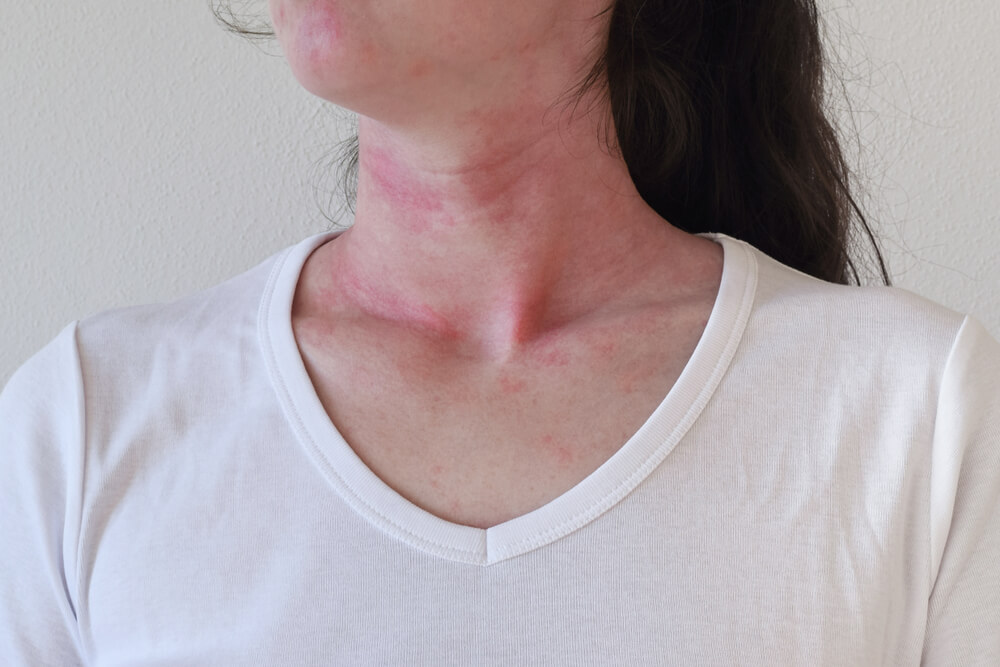What to Do When Someone is in Anaphylactic Shock
Allergic Reactions
•
Mar 17, 2021

Whether someone you love has severe allergies and you’re looking for general best safety practices or you are helping someone right now who is in a medical emergency, knowing what to do when someone is in anaphylactic shock can make all the difference. In case you’re reading this blog for the latter reason, let’s jump right to the instructions.
What is the first aid treatment for anaphylaxis?
- Call 911 immediately or send someone to call 911 immediately; don’t wait to see if the symptoms get better.
- Ask if the person has an epinephrine autoinjector (EpiPen, Auvi-Q, etc.) and if they need help using it. Typically, the autoinjector is pressed into the person’s thigh.
- Have the person lay down and elevate their legs; if the person is vomiting, turn them on their side to help prevent choking. If breathing becomes difficult, allow the person to sit up (but not stand).
- Monitor vital signs such as breathing and pulse.
- If the person stops breathing, begin CPR.
- If vital signs remain stable, do what you can to keep the person comfortable until the paramedics arrive; loosen tight clothing, cover them with a blanket, etc.
FAQs with regard to what to do when someone is in anaphylactic shock:
Q: If anaphylactic shock is the result of a bug bite, should I remove the stinger?
A: Yes, flick out the sting if possible, but do not remove ticks.
Q: What do you do if someone goes into anaphylactic shock without an EpiPen?
A: Make sure that you’ve called 911. If antihistamines are on-hand, these can be administered and may provide some relief, but antihistamines are never a suitable medication for fully treating anaphylactic shock.
Q: If the person appears to be getting better, should we still go to the ER?
A: Yes, almost all cases of anaphylactic shock are cases for when to go to the ER for an allergic reaction. In some cases of anaphylaxis, secondary reactions can occur.
Q: How can I tell if my child is having an allergic reaction?
A: Please check the symptoms for allergic reactions below. Especially in young children, individuals in anaphylactic shock may be pale and floppy in addition to other symptoms.
For more information, please see our article: What to Do if a Child Has an Allergic Reaction.
Anaphylactic shock symptoms
The signs and symptoms of an allergic reaction will vary depending on the type of reaction that occurs. For example, mild to moderate allergic reactions may involve swelling of the lips, face, and eyes, hives and welts, congestion, runny nose, and sneezing.
However, individuals experiencing anaphylaxis — a severe allergic reaction — may or may not experience the above symptoms, but typically do exhibit:
- Difficulty breathing or noisy breathing
- Swelling of the tongue
- Swelling and/or tightness in the throat
- Wheezing
- Persistent cough
- Difficulty talking
- Dizziness
- Fainting or collapsing
- Paleness and floppiness (in young children)
Keep in mind that there are a wide variety of allergens out there that can trigger allergic reactions; doctors regularly see everything from allergic reaction to bug bites to lactose intolerance symptoms. It’s when the allergic reaction to these allergens becomes severe that an ER trip is necessary.
Anaphylactic shock treatment at Complete Care
Whether you know exactly what to do when someone is in anaphylactic shock or have never experienced one of these severe allergic reactions before, it’s critical that the person experiencing anaphylaxis gets emergency medical treatment.
It is typical for patients who experience these types of reactions to need up to 4 hours of observation. Some patients may require additional adrenaline doses or other types of treatment.
At Complete Care, our state-of-the-art facilities and award-winning doctors and nurses are well equipped to give patients who are experiencing anaphylactic shock the professional, emergency medical treatment they need.
We have ER locations in both Texas (Austin, Corpus Christi, San Antonio, Dallas/Fort Worth, East Texas, and Lubbock) and Colorado (Colorado Springs). Whether you have an emergency or just a simple health question, we will take complete care of you.
More Helpful Articles by Complete Care:
